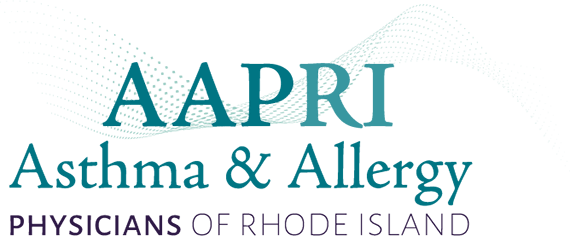Food Allergy Awareness Campaign Celebrates 20th Anniversary
Did you know that May is National Asthma and Allergy Awareness Month? One week of this initiative is dedicated to raising awareness about food allergies specifically. That week starts May 14th, 2017. We here at Asthma and Allergy Physicians of Rhode Island are commemorating Food Allergy Awareness month by increasing awareness, spreading education, and promoting safety for food allergy sufferers.
Fast Facts about Food-Related Allergies
According to Food Allergy Research and Education, approximately 15 million Americans have allergies to common foods. This number includes more than 6 million children, and many of these youngsters have multiple sensitivities. Allergies can spring up at any time in adulthood, as well. For example, a gluten allergy like celiac disease can develop at any age.
Common Types of Food Allergies
Scientists know that more than 170 foods cause allergic responses. However, the so-called Top Eight are responsible for 90 percent of serious and life-threatening reactions. Familiarize yourself with these common food allergy triggers:
• Eggs
• Fish
• Shellfish
• Milk and dairy products
• Soybeans and soy-based ingredients
• Wheat and gluten
• Tree nuts
• Peanuts
How to Spot an Allergic Reaction
One of the best things you can do to commemorate Food Allergy Awareness Month is to educate yourself and your family about the warning signs of an allergic reaction. Teach children what to look for so that they can ask for medical attention. Some reactions begin several minutes after eating, or it could take up to two hours for symptoms to develop. Occasionally, symptoms begin more than six hours later.
For example, signs of a shellfish allergy usually develop within minutes. Symptoms of delayed-onset meat allergies can take as long as four to six hours to manifest. Don’t underestimate the severity of any allergy. With a food intolerance, the effects might be mild, but reactions can be life-threatening. Here are the most common signs of allergic reactions and anaphylaxis:
• Difficulty breathing
• Hives and rashes
• Stomach cramps
• Vomiting
• Swelling
• Dizziness
Tips for Living with Food Allergies
If someone in your family has been diagnosed with a food allergy, take advantage of online resources offered by national organizations, bloggers and advocacy groups. Help your loved ones by teaching them to read food labels. Educate your friends and family about allergies and what they can do in case of an emergency. Print food allergy cards that you can give to restaurant staff. Focus on the rich variety of foods that individuals with allergies can eat, not the few things that they can’t have.
How to Get Involved
Awareness campaigns help to improve quality of life for millions of people who have allergies. There are many rewarding ways to get involved.
• Sign up for an allergy-related newsletter. Follow a blog about gluten-free cooking, or join an online community.
• Participate in an allergy awareness event within Rhode Island.
• Support allergy research by donating to the Asthma and Allergy Foundation of America (AAFA).
• On social media sites, you can post your story, share awareness infographics and use food allergy hashtags.
• Volunteer your time to increase allergy awareness in your community.
Thanks to advocates like you, Food Allergy Awareness Week is celebrating its 20th year. If you’re interested in learning more, contact us at Asthma & Allergy Physicians.

